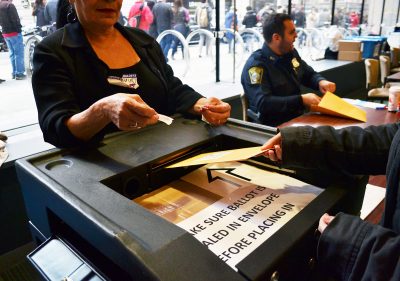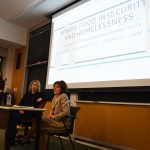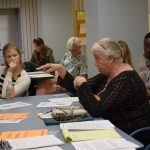
The American Civil Liberties Union filed a lawsuit against the Secretary of the Commonwealth William Galvin on Wednesday challenging Massachusetts’ current voter registration cutoff law, according to a press release.
The voter registration cutoff, which is 20 days prior to election day, bans otherwise eligible citizens from voting if they register after Oct. 19, according to the release.
The case, brought up by the Chelsea Collaborative, MassVOTE and several individual citizens, aims to declare the voter registration cutoff law unconstitutional in Suffolk Superior Court, according to the release.
The release stated the law is unconstitutional because it disenfranchises voters, affecting first-time voters, students, people in poorer communities and the elderly especially.
“The fundamental right to vote is the cornerstone of our democracy,” Rahsaan Hall, director of the ACLU of Massachusetts’ Racial Justice Program, said in the release. “But in Massachusetts, our nearly three-week ‘Voter Cutoff Law’ continues to disenfranchise thousands of voters in every single election.”
In addition to requesting that the Massachusetts government end its enforcement of the law entirely, the ACLU requests that the individual plaintiffs on the case be allowed to register to vote in this Tuesday’s election, according to the release.
“MassVOTE wants as many eligible voters as possible to exercise their right to vote … It’s so disappointing when citizens get engaged and excited about civic participation and find out they cannot vote because of the registration cutoff,” Cheryl Clyburn Crawford, the executive director of MassVOTE, said in the release.
Jessie Rossman, a staff attorney with the ACLU of Massachusetts, said the cutoff to register occurs during one of the most crucial times in the election season.
“A 20-day cutoff turns people away just as some of the most significant campaign events begin to unfold,” Rossman said in the release. “Campaigns make vigorous use of the last 20 days before an election, working into the final hours to identify and attract potential voters.”
In contrast to Massachusetts, three New England states — Maine, Vermont and New Hampshire — permit same-day registration, allowing eligible citizens to register and vote on the same day.
Kristen Muszynski, the spokesperson for the Maine Secretary of State, said her state’s 2011 law allowing for same-day registration maximizes voter turnout.
“Generally, the idea behind this [law] is that it allows as many voters as possible to take part in the process of the election because there isn’t that cut-off,” Muszynski said. “If they show up on Election Day and realize they hadn’t registered, or if they need to update something, then they can do so, and they’ll still be able to vote.”
Muszynski said Maine tends to have high voter turnout compared to most other states, which could be attributed to their same-day voter registration laws.
“You can’t always remember to get your registration done ahead of time, but you can still get it done and vote,” Muszynski said.
Several Boston residents said they support the lawsuit that is fighting the current 20-day voter registration cutoff.
Gavin Ernst, 24, of Allston, said while he thinks voters should be responsible for registering before the deadline, no one should be penalized for forgetfulness.
“While people should make it their responsibility to make sure they’re registered, there are always going to be people who forget until the day of,” Ernst said.
Dave Branigan, 61, of Back Bay, said the voter registration cutoff law was not a good idea because it discouraged voting, especially from the younger generation.
“Voting is a right. It’s something we should all do, but a cut-off means that you can’t,” Branigan said. “Younger people don’t do it, the younger generation just doesn’t do it, but this election especially … is important.”
Jaxell Negron, 19, of Fenway, said that the current registration regulations seem “strict,” and if same-day registration works in other states, he sees no reason why it shouldn’t work in the commonwealth.
“It’s not like people have 20 days before the election marked on their calendar,” Negron said. “It might just slip by a lot of people, and it’s important to have as many people voting this year possible.”












